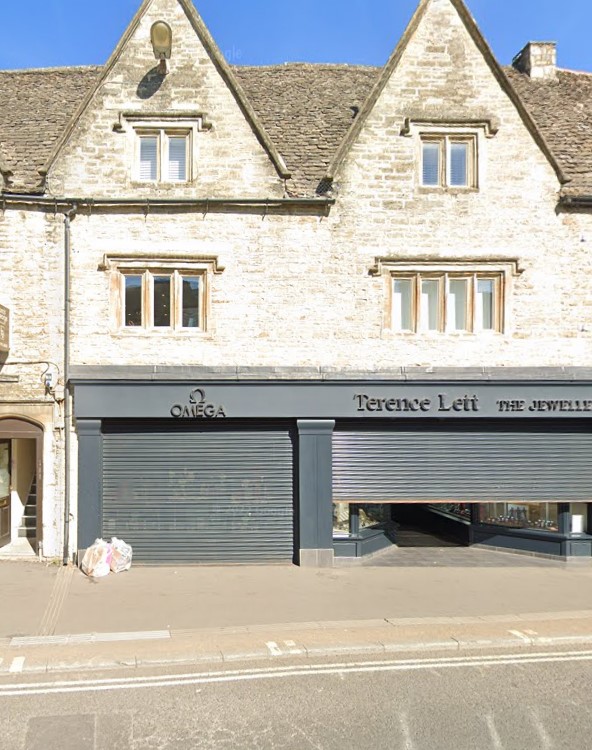A WELL-loved jewellry shop is set to close its doors permanently following the launch of a major closing-down sale.
Terence Lett Jewellers, located on the high street in Witney, Oxfordshire, has announced its decision to shut up shop.
A post on the retailer’s Facebook page said: “By order of the executor, we are closing down – everything must go!!
“It’s the end of an era, but the start of an amazing jewellery sale.
“Join us on Saturday 12th April at 09:30am as we launch an incredible closedown sale with 50% off all jewellery.
“The sale starts on Saturday 12th April at 9.30am and will continue while stock lasts.”
read more in store closures
Locals were left reeling by the shock closure, with many vowing to enter the shop’s doors for the final time to snag a bargain.
“I’m so sad to read this,” one wrote.
“I’ll get down on Monday.”
A second wrote: “Lovely shop and kind and friendly staff.
“Will be greatly missed.”
A third weighed in: “Gutted to hear this!”
Other shops leaving the high street
Beales, one of Britain’s oldest department stores, has launched a closing down sale before it shuts its last remaining shop after more than 140 years.
The company will shut its branch in Poole’s Dolphin Centre on May 31.
The sale includes fashion, furniture, gifts and cosmetics, being sold for up to 70% off.
Beales chief executive Tony Brown blamed the “devastating impact” of the rise in national insurance contributions and the higher minimum wage for the store closure.
Meanwhile, high street fashion chain New Look has begun to close stores as it scales back its UK footprint.
It is understood to be shutting nearly 100 stores – equivalent to around a quarter of its 364 shops.
Stores in Gateshead, Tyne and Wear, St Austell, Cornwall and Porth, Rhondda Cynon Taf have launched closing down sales.
Reports suggest that the company has been forced to accelerate the pace of store closures due to tax changes in the Autumn Budget.
Meanwhile, Huttons in London will shut its store in the Putney Exchange due to excessive energy costs.
The gift shop became a local icon after it opened in the 1990s.
Why are retailers closing shops?
EMPTY shops have become an eyesore on many British high streets and are often symbolic of a town centre’s decline.
The Sun’s business editor Ashley Armstrong explains why so many retailers are shutting their doors.
In many cases, retailers are shutting stores because they are no longer the money-makers they once were because of the rise of online shopping.
Falling store sales and rising staff costs have made it even more expensive for shops to stay open.
The British Retail Consortium has predicted that the Treasury’s hike to employer NICs from April 2025, will cost the retail sector £2.3billion.
At the same time, the minimum wage will rise to £12.21 an hour from April, and the minimum wage for people aged 18-20 will rise to £10 an hour, an increase of £1.40.
In some cases, retailers are shutting a store and reopening a new shop at the other end of a high street to reflect how a town has changed.
The problem is that when a big shop closes, footfall falls across the local high street, which puts more shops at risk of closing.
Retail parks are increasingly popular with shoppers, who want to be able to get easy, free parking at a time when local councils have hiked parking charges in towns.
Many retailers including Next and Marks & Spencer have been shutting stores on the high street and taking bigger stores in better-performing retail parks instead.
In some cases, stores have been shut when a retailer goes bust, as in the case of Carpetright, Debenhams, Dorothy Perkins, Paperchase, Ted Baker, The Body Shop, Topshop and Wilko to name a few.
What’s increasingly common is when a chain goes bust a rival retailer or private equity firm snaps up the intellectual property rights so they can own the brand and sell it online.
They may go on to open a handful of stores if there is customer demand, but there are rarely ever as many stores or in the same places.
The Centre for Retail Research (CRR) has warned that around 17,350 retail sites are expected to shut down this year.







